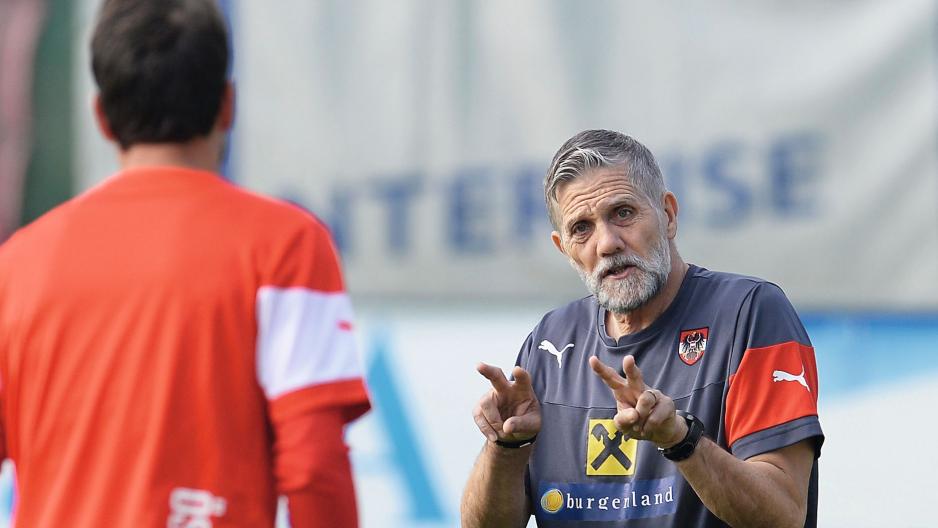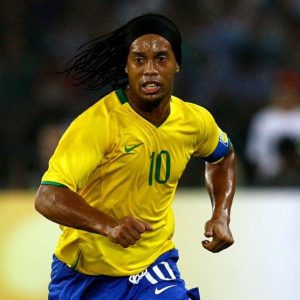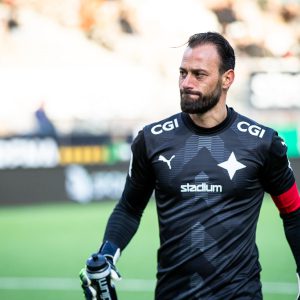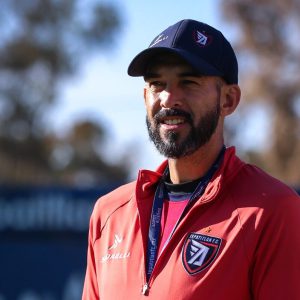

“We Trained More Like Dancers Than Athletes”
Few professionals – if any – in world football can claim to have worked with Bobby Robson, Jose Mourinho, Arsene Wenger, Carlos Queiróz, Mario Zagallo and Carlos Alberto. Roger Spry’s CV is one of the most impressive around. And his accomplishments are matched only by his passion.
The spiritual side of football, the emotional side of football. We’re not talking about religion; we’re talking about a feeling. You get joy not just from winning, which is the big joy. You can go onto the pitch and do everything to the best of your ability and still come off the pitch happy – but sad you’ve lost.” – He derives pleasure from that intangible quality of football, the one that makes it so universally loved.
His devotion to the beautiful game made forging a career within its parameters a natural choice. “I was a footballer when I was young. I played for Wolverhampton Wanderers, and I had a very bad leg injury. I was off for a long time, and when I came back, I had the same injury on the same leg. So that really finished me as a player.
“But then I was much more interested in how to train players because I’d had so many different bits of information. One coach says do this, the other coach would say something else. And I was never really satisfied with any of the answers.” Spry decided to find some of his own.
In attempting to do so, he travelled to Brazil where he would cooperate with Tele Santana, Carlos Alberto Pereira and Mario Zagallo.
One of the biggest differences was that they never trained footballers like athletes,” – says Spry. This realisation would form the bedrock of the conditioning coach’s philosophy.
Whereas English football at the time “was all based on running, on strength in the gymnasium,” Brazil was doing things differently. “When I watched the way the Brazilians trained, it was all based on dancelike movements – all different rhythms that they were working to. I’m a professional musician so instantly I recognised how the music and the martial arts and everything was the way the Brazilians trained”
“I started to introduce lots of those types of methods when I came back to England and at first everyone thought I was crazy. Everyone said ‘we’re footballers, not dancers.’ I said ‘look, in this country when we’re taught to beat someone, we look at the space behind the player and then go into that space. They don’t do that. They don’t have any space? They create the space themselves.’”
This, as Spry goes on to explain, is a layered concept. But “the sign of a top coach is making very, very complex philosophies very simple.”
“The worst coaches I’ve ever worked with are in America. They over analyse everything.” He goes on to tell the tale of when he attended a conference in America with four-time World Cup winner Mario Zagallo. Halfway through the keynote speakers speech, The Brazilian turned to him and said: “Mister, do you understand any of this?” “Absolutely none,” Spry replied. “If he [Zagallo] doesn’t understand it what chance do these young coaches in the audience have?”
Spry went on to further explain how Brazilian martial arts have influenced his approach. “I stood there and I just couldn’t believe what I was seeing. It was unbelievably powerful, unbelievably unpredictable and beautiful to watch.” He was talking about the first time he witnessed Brazilian coaches employ Capoeira, a beautiful martial arts discipline which incorporates elements of acrobatics and dance.
In Capoeira, everything is based on being unpredictable and very creative with your movements. It’s not straight lines and it’s not based on speed. It’s based more on animal cunning and reading the opposition’s body movements – and then doing the opposite.”
After implementing Capoeira in his training regimes, Spry received acclaim from the great Eusebio. “He said ‘when I heard you had come to Sporting, I was a little bit worried because I thought you’d be typical English coach, having everyone run around the pitch. But when I saw your work, I see you’re training like a Brazilian.’”
“We trained more like dancers than athletes. And the thing was it was producing results as well. Every player I worked with, they were becoming more flexible, more powerful, and the one thing which all the physiotherapists told me was the injuries at all the clubs I’ve worked at have been reduced drastically.”
Despite working for Arsenal, Sporting Lisbon, Aston Villa, Porto and a bevvy of other clubs, Spry is content knowing he still has more to learn. “Only two people know everything. One is God, the other one’s a liar.”
Watch the full interview bellow:
More at www.hub-soccer.com
Follow us on Facebook!
Categories
Latest Courses
-
9 Lessons
-
1 Lesson
-
6 Lessons
You May Also Like
-
-
August 1, 2022
-
-
June 3, 2022
-
-
May 27, 2022





